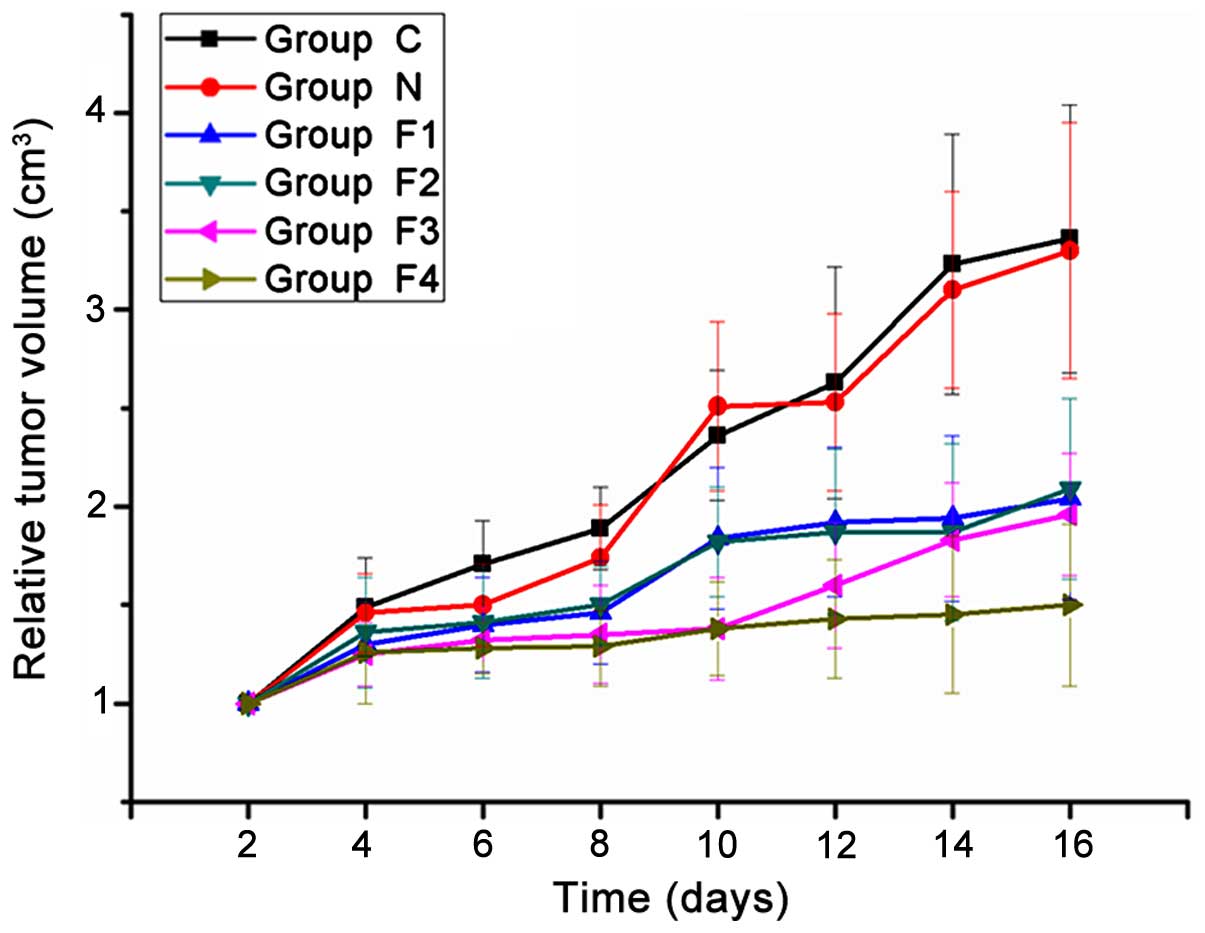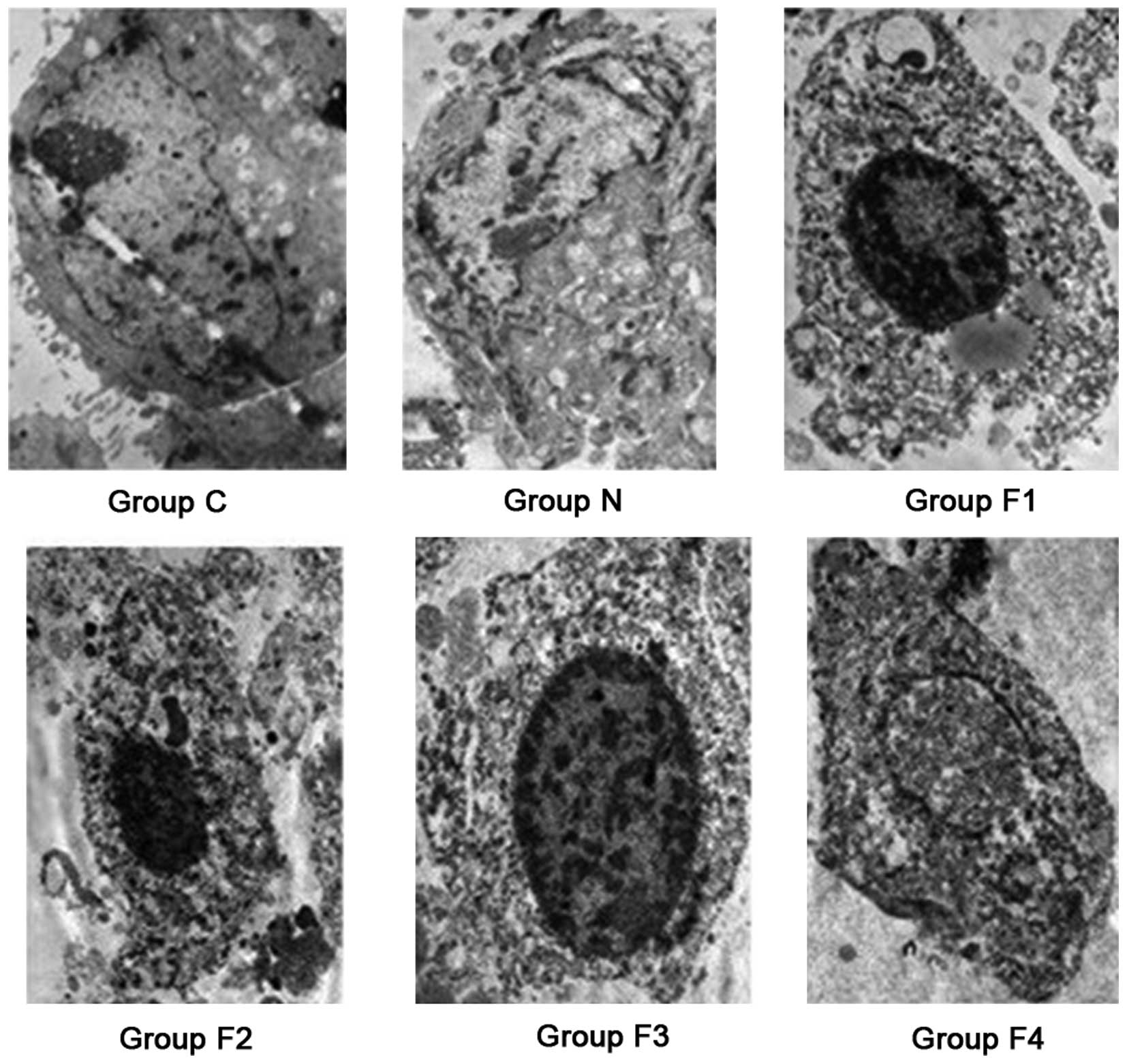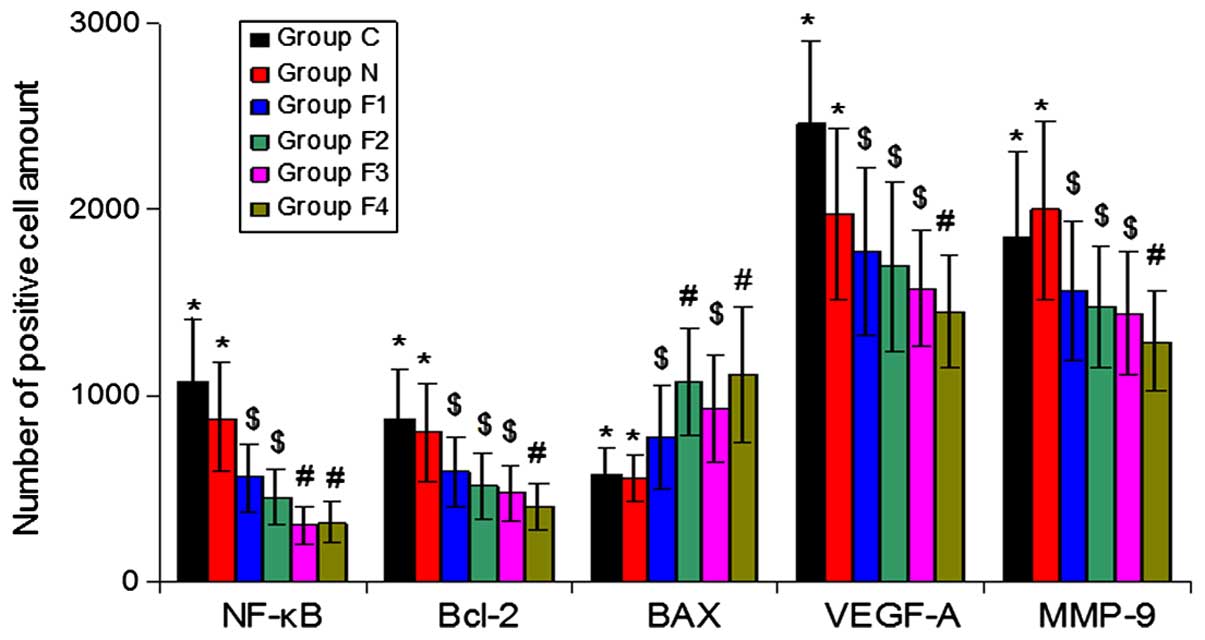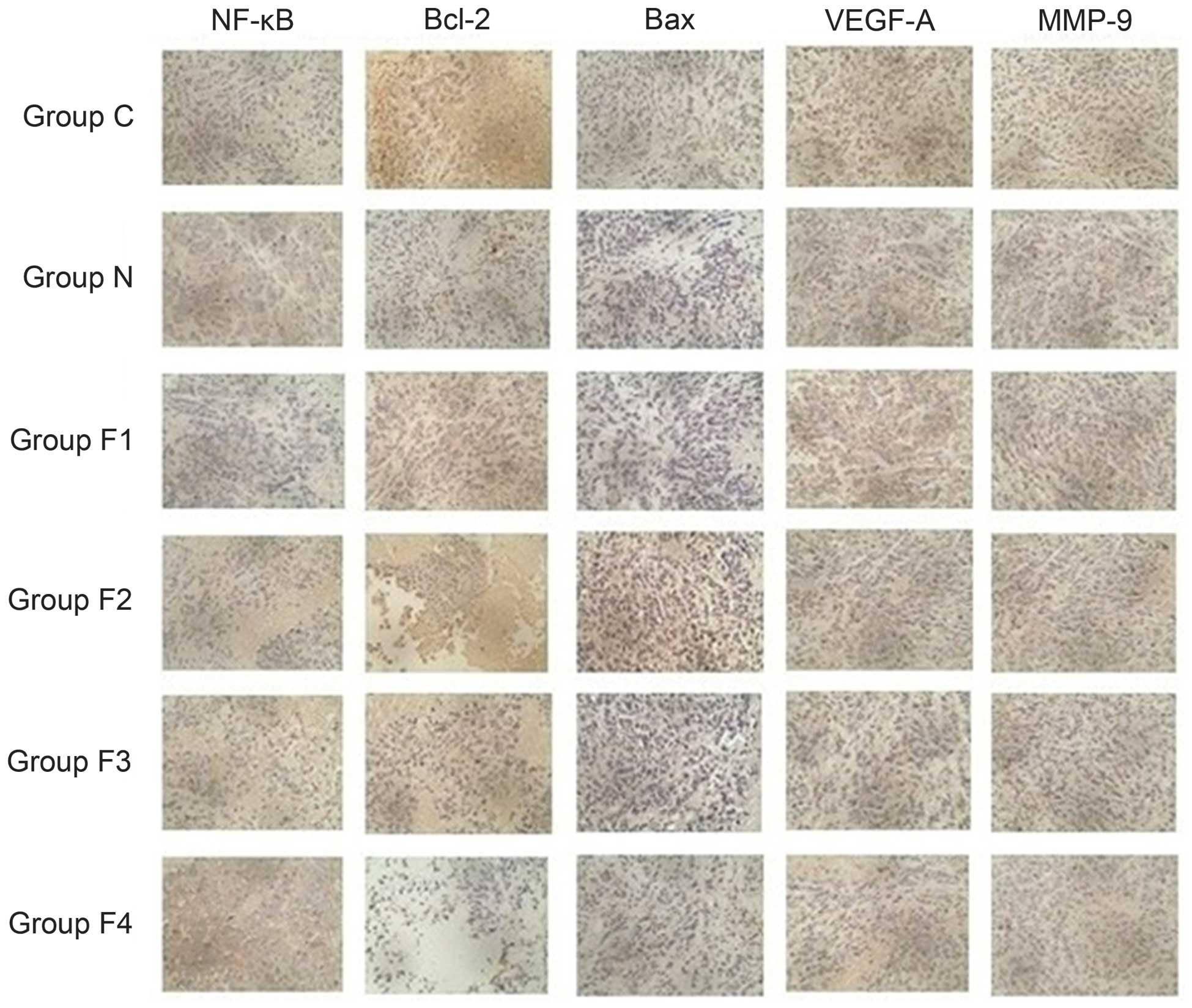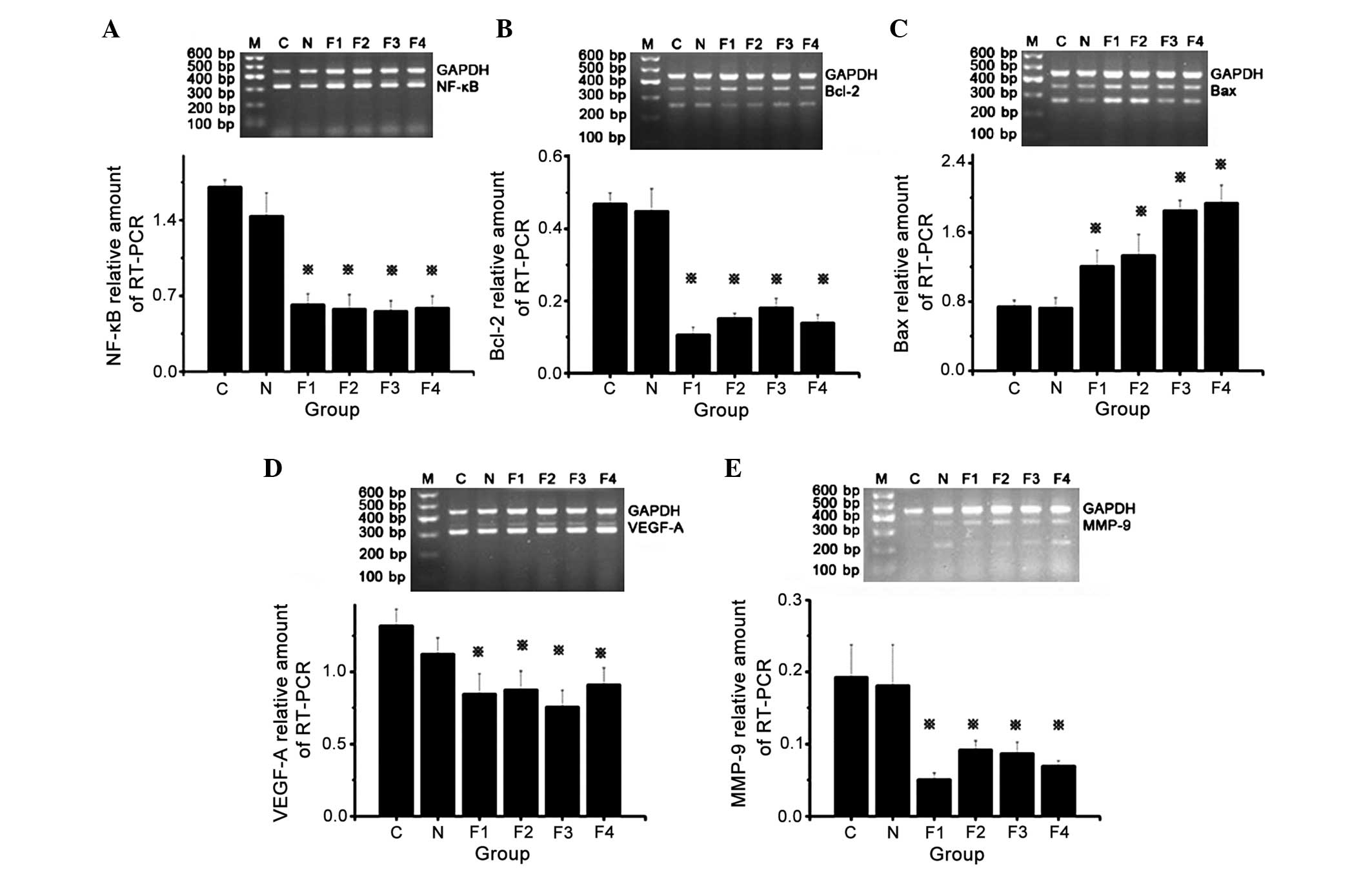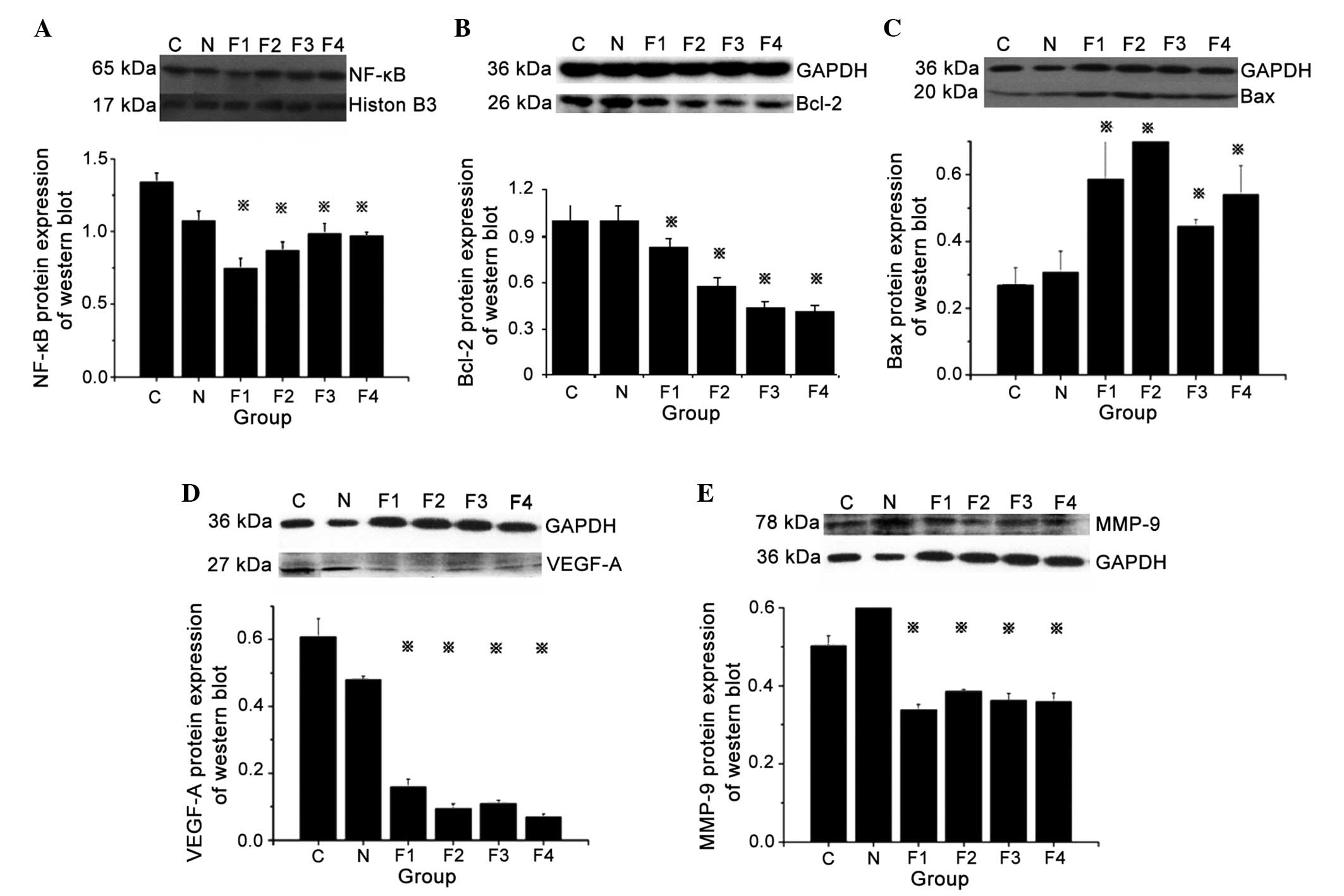|
1
|
Jemal A, Bray F, Center MM, Ferlay J, Ward
E and Forman D: Global cancer statistics. CA Cancer J Clin.
61:69–90. 2011. View Article : Google Scholar : PubMed/NCBI
|
|
2
|
Tsamandas AC, Kardamakis D, Tsiamalos P,
Liava A, Tzelepi V, Vassiliou V, Petsas T, Vagenas K, Zolota V and
Scopa CD: The potential role of Bcl-2 expression, apoptosis and
cell proliferation (Ki-67 expression) in cases of gastric carcinoma
and correlation with classic prognostic factors and patient
outcome. Anticancer Res. 29:703–709. 2009.PubMed/NCBI
|
|
3
|
Stanley TH: The fentanyl story. J Pain.
15:1215–1226. 2014. View Article : Google Scholar : PubMed/NCBI
|
|
4
|
Mystakidou K, Katsouda E, Parpa E, Vlahos
L and Tsiatas ML: Oral transmucosal fentanyl citrate: Overview of
pharmacological and clinical characteristics. Drug Deliv.
13:269–276. 2006. View Article : Google Scholar : PubMed/NCBI
|
|
5
|
Seifeldin R and Grossman P: Fentanyl
transdermal system and oxycodone hydrochloride. J Manag Care Pharm.
9:457–459. 2003.PubMed/NCBI
|
|
6
|
Huffman DM, Grizzle WE, Bamman MM, Kim JS,
Eltoum IA, Elgavish A and Nagy TR: SIRT1 is significantly elevated
in mouse and human prostate cancer. Cancer Res. 67:6612–6618. 2007.
View Article : Google Scholar : PubMed/NCBI
|
|
7
|
Qin Y, Li L, Chen J, Tang X, Liao C, Xie Y
and Xiao Q: Fentanyl inhibits progression of human gastric cancer
MGC-803 cells by NF-kappaB downregulation and PTEN upregulation in
vitro. Oncol Res. 20:61–69. 2012. View Article : Google Scholar : PubMed/NCBI
|
|
8
|
Yang F, Wang H, Jiang Z, Hu A, Chu L, Sun
Y and Han J: MicroRNA-19a mediates gastric carcinoma cell
proliferation through the activation of nuclear factor-κB. Mol Med
Rep. 12:5780–5786. 2015.PubMed/NCBI
|
|
9
|
Ma J, Liu J, Wang Z, Gu X, Fan Y, Zhang W,
Xu L, Zhang J and Cai D: NF-kappaB-dependent microRNA-425
upregulation promotes gastric cancer cell growth by targeting PTEN
upon IL-1β induction. Mol Cancer. 13:402014. View Article : Google Scholar : PubMed/NCBI
|
|
10
|
Beg AA, Sha WC, Bronson RT, Ghosh S and
Baltimore D: Embryonic lethality and liver degeneration in mice
lacking the RelA component of NF-kappa B. Nature. 376:167–170.
1995. View
Article : Google Scholar : PubMed/NCBI
|
|
11
|
Baeuerle PA and Baltimore D: NF-kappa B:
Ten years after. Cell. 87:13–20. 1996. View Article : Google Scholar : PubMed/NCBI
|
|
12
|
Yi J and Luo J: SIRT1 and p53, effect on
cancer, senescence and beyond. Biochim Biophys Acta.
1804:1684–1689. 2010. View Article : Google Scholar : PubMed/NCBI
|
|
13
|
Fabry ME, Kaul DK, Davis L, Gore JC, Brown
M and Nagel RL: An animal model for sickle cell vaso-occlusion: A
study using NMR and technetium imaging. Prog Clin Biol Res.
240:297–304. 1987.PubMed/NCBI
|
|
14
|
Fustéi Gamisans M and Busquet Duran X:
Impact of the commercialization of transdermic fentanyl on the home
care of terminal cancer patients. Aten Primaria. 29:316–317.
2002.(In Spanish). PubMed/NCBI
|
|
15
|
Lennon FE, Mirzapoiazova T, Mambetsariev
B, Poroyko VA, Salgia R, Moss J and Singleton PA: The Mu opioid
receptor promotes opioid and growth factor-induced proliferation,
migration and epithelial mesenchymal transition (EMT) in human lung
cancer. PLoS One. 9:e915772014. View Article : Google Scholar : PubMed/NCBI
|
|
16
|
Zhang XL, Chen ML and Zhou SL: Fentanyl
increases colorectal carcinoma cell apoptosis by inhibition of
NF-κB in a Sirt1-dependent manner. Asian Pac J Cancer Prev.
15:10015–10020. 2014. View Article : Google Scholar : PubMed/NCBI
|
|
17
|
Kampa M, Bakogeorgou E, Hatzoglou A,
Damianaki A, Martin PM and Castanas E: Opioid alkaloids and
casomorphin peptides decrease the proliferation of prostatic cancer
cell lines (LNCaP, PC3 and DU145) through a partial interaction
with opioid receptors. Eur J Pharmacol. 335:255–265. 1997.
View Article : Google Scholar : PubMed/NCBI
|
|
18
|
Baldwin AS Jr: The NF-kappa B and I kappa
B proteins: New discoveries and insights. Annu Rev Immunol.
14:649–683. 1996. View Article : Google Scholar : PubMed/NCBI
|
|
19
|
Verma IM, Stevenson JK, Schwarz EM, Van
Antwerp D and Miyamoto S: Rel/NF-kappa B/I kappa B family: Intimate
tales of association and dissociation. Genes Dev. 9:2723–2735.
1995. View Article : Google Scholar : PubMed/NCBI
|
|
20
|
Boland MP, Foster SJ and O'Neill LA:
Daunorubicin activates NFkappaB and induces kappaB-dependent gene
expression in HL-60 promyelocytic and Jurkat T lymphoma cells. J
Biol Chem. 272:12952–12960. 1997. View Article : Google Scholar : PubMed/NCBI
|
|
21
|
Chang CK, Llanes S and Schumer W: Effect
of dexamethasone on NF-κB activation, tumor necrosis factor
formation, and glucose dyshomeostasis in septic rats. J Surg Res.
72:141–145. 1997. View Article : Google Scholar : PubMed/NCBI
|
|
22
|
Welters ID, Fimiani C, Bilfinger TV and
Stefano GB: NF-kappaB, nitric oxide and opiate signaling. Med
Hypotheses. 54:263–268. 2000. View Article : Google Scholar : PubMed/NCBI
|
|
23
|
Welters ID, Menzebach A, Goumon Y, Cadet
P, Menges T, Hughes TK, Hempelmann G and Stefano GB: Morphine
inhibits NF-kappaB nuclear binding in human neutrophils and
monocytes by a nitric oxide-dependent mechanism. Anesthesiology.
92:1677–1684. 2000. View Article : Google Scholar : PubMed/NCBI
|
|
24
|
Scopa CD, Vagianos C, Kardamakis D,
Kourelis TG, Kalofonos HP and Tsamandas AC: Bcl-2/bax ratio as a
predictive marker for therapeutic response to radiotherapy in
patients with rectal cancer. Appl Immunohistochem Mol Morphol.
9:329–334. 2001. View Article : Google Scholar : PubMed/NCBI
|
|
25
|
Oltvai ZN, Milliman CL and Korsmeyer SJ:
Bcl-2 heterodimerizes in vivo with a conserved homolog, Bax, that
accelerates programmed cell death. Cell. 74:609–619. 1993.
View Article : Google Scholar : PubMed/NCBI
|
|
26
|
Crowson AN, Magro CM, Kadin ME and Stranc
M: Differential expression of the bcl-2 oncogene in human basal
cell carcinoma. Hum Pathol. 27:355–359. 1996. View Article : Google Scholar : PubMed/NCBI
|
|
27
|
Jeong SH, Lee HW, Han JH, Kang SY, Choi
JH, Jung YM, Choi H, Oh YT, Park KJ, Hwang SC, et al: Low
expression of Bax predicts poor prognosis in resected non-small
cell lung cancer patients with non-squamous histology. Jpn J Clin
Oncol. 38:661–669. 2008. View Article : Google Scholar : PubMed/NCBI
|
|
28
|
Jin Z, Yan W, Jin H, Ge C and Xu Y:
Differential effect of psoralidin in enhancing apoptosis of colon
cancer cells via nuclear factor-kappaB and B-cell lymphoma-2/B-cell
lymphoma-2-associated X protein signaling pathways. Oncol Lett.
11:267–272. 2016.PubMed/NCBI
|
|
29
|
Yancopoulos GD, Davis S, Gale NW, Rudge
JS, Wiegand SJ and Holash J: Vascular-specific growth factors and
blood vessel formation. Nature. 407:242–248. 2000. View Article : Google Scholar : PubMed/NCBI
|
|
30
|
Carmeliet P and Jain RK: Angiogenesis in
cancer and other diseases. Nature. 407:249–257. 2000. View Article : Google Scholar : PubMed/NCBI
|
|
31
|
Spyridopoulos I, Luedemann C, Chen D,
Kearney M, Chen D, Murohara T, Principe N, Isner JM and Losordo DW:
Divergence of angiogenic and vascular permeability signaling by
VEGF: Inhibition of protein kinase C suppresses VEGF-induced
angiogenesis, but promotes VEGF-induced, NO-dependent vascular
permeability. Arterioscler Thromb Vasc Biol. 22:901–906. 2002.
View Article : Google Scholar : PubMed/NCBI
|
|
32
|
Takahashi S: Vascular endothelial growth
factor (VEGF), VEGF receptors and their inhibitors for
antiangiogenic tumor therapy. Biol Pharm Bull. 34:1785–1788. 2011.
View Article : Google Scholar : PubMed/NCBI
|
|
33
|
Lee SJ, Kim JG, Sohn SK, Chae YS, Moon JH,
Kim SN, Bae HI, Chung HY and Yu W: No association of vascular
endothelial growth factor-A (VEGF-A) and VEGF-C expression with
survival in patients with gastric cancer. Cancer Res Treat.
41:218–223. 2009. View Article : Google Scholar : PubMed/NCBI
|
|
34
|
Kessenbrock K, Plaks V and Werb Z: Matrix
metalloproteinases: Regulators of the tumor microenvironment. Cell.
141:52–67. 2010. View Article : Google Scholar : PubMed/NCBI
|
|
35
|
Hansson J, Lind L, Hulthe J and Sundström
J: Relations of serum MMP-9 and TIMP-1 levels to left ventricular
measures and cardiovascular risk factors: A population-based study.
Eur J Cardiovasc Prev Rehabil. 16:297–303. 2009. View Article : Google Scholar : PubMed/NCBI
|
|
36
|
Nissen LJ, Cao R, Hedlund EM, Wang Z, Zhao
X, Wetterskog D, Funa K, Bråkenhielm E and Cao Y: Angiogenic
factors FGF2 and PDGF-BB synergistically promote murine tumor
neovascularization and metastasis. J Clin Invest. 117:2766–2777.
2007. View Article : Google Scholar : PubMed/NCBI
|
|
37
|
Cao R, Björndahl MA, Religa P, Clasper S,
Garvin S, Galter D, Meister B, Ikomi F, Tritsaris K, Dissing S, et
al: PDGF-BB induces intratumoral lymphangiogenesis and promotes
lymphatic metastasis. Cancer Cell. 6:333–345. 2004. View Article : Google Scholar : PubMed/NCBI
|
|
38
|
Sun WH, Sun YL, Fang RN, Shao Y, Xu HC,
Xue QP, Ding GX and Cheng YL: Expression of cyclooxygenase-2 and
matrix metalloproteinase-9 in gastric carcinoma and its correlation
with angiogenesis. Jpn J Clin Oncol. 35:707–713. 2005. View Article : Google Scholar : PubMed/NCBI
|
|
39
|
Yang Q, Ye ZY, Zhang JX, Tao HQ, Li SG and
Zhao ZS: Expression of matrix metalloproteinase-9 mRNA and vascular
endothelial growth factor protein in gastric carcinoma and its
relationship to its pathological features and prognosis. Anat Rec
(Hoboken). 293:2012–2019. 2010. View Article : Google Scholar : PubMed/NCBI
|















